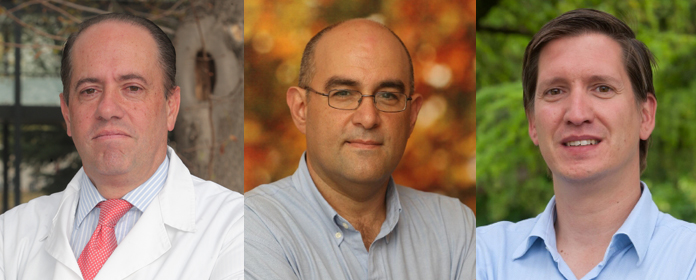"It is important that adolescents do not mistake an initial attraction for the love of their lives"
ICS experts claim in a book chapter that, "love is reached by way of friendship, through real knowledge of the other person"

"It is important that adolescents do not mistake an initial attraction for the love of their lives. Thus, they must be cautious with their impulses and feelings and offer their sexuality when they can really give it to someone with whom they will share their life." Or so three researchers from the Institute Culture and Society (ICS) of the University of Navarra state, including Jokin de Irala, Professor of Preventive Medicine and Public Health, Carlos Beltramo, Doctor of Education, and Alfonso Osorio, professor within the School of Education and Psychology.
These experts, from the ICS Education of Affectivity and Human Sexuality project, authored the chapter Relación afectiva y apego en el noviazgo (Emotional relationships and attachment in dating,) in the book La formación de la voluntad matriomonial: anomalías, patologías y normalidad (The formation the marital will: Abnormalities, pathology and normality). The volume contains the proceedings from the 10th International Symposium organized by the Martín de Azpilcueta Institute of the School of Canon Law.
According to these experts, "adolescents must seek to get to know the person to whom they are attracted well, knowing that with patience they will make fewer mistakes." In this regard, they note that love "is reached by way of friendship, through real knowledge of the other person. In love there is respect, commitment, a desire to share, the ability to forgive and to ask for forgiveness. In love, partners stick together through thick and thin."
Hedonism produces "emotional blindness"By contrast, they emphasize that hedonistic practices produce "emotional blindness" because, for this type of behavior, "affectivity is not integrated, but rather is dominated by impulses" and, therefore, in these relationships "skepticism prevails against any greater commitment."
"The gestures of love," as they note, "include complete physical and spiritual union. Everyday tenderness also occurs during dating, but sex has its proper place in marriage. Commitment and dedication will be maintained over time, overcoming the difficulties inherent in having a shared life."
Doctors De Irala, Beltramo and Osorio make the following recommendations to help young people delay sexual intercourse: learn about the meaning of love and sexuality, strengthen the will, learn to manage sex drive and choose healthy leisure activities.
To help them acquire these habits, they emphasize the importance of "having elements of a sexual-affective education to configure remote and mediate preparation both in their parents' behavior and in the information that young people receive."
Read their chapter ‘Relación afectiva y apego en el noviazgo'




